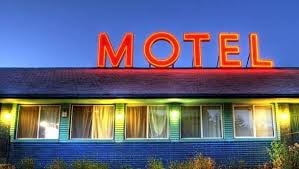If you’re thinking of opening your own accommodation business in Australia, you might be at the stage where you need a hotel and accommodation business plan?
Not to fear – whether you’re an experienced hotelier, or an entrepreneur with a passion for hospitality, getting the business planning stage right gives you a much better chance of succeeding in the hospitality industry.
In this guide we’ll take you through the steps to create a hotel and accommodation business plan for the Australian market. We’ll cover market analysis and financial projections to operational considerations and marketing strategies.
By the end you’ll have a clear plan to turn your hotel business idea into a reality.

Australian Hotel and Accommodation Industry
Before we get into the nitty gritty of your hotel business plan, it’s important to understand the Australian hotel and accommodation industry. According to Tourism Research Australia, the hotel and resorts sector is projected to generate $14.1 billion in 2024, with an annual growth rated of 3.7% until 2030.
Understanding the market demand is crucial as it helps in forecasting occupancy rates and setting competitive pricing strategies.
The Australian hotel and accommodation industry is being shaped by a number of trends, including:
-
Sustainability and eco-friendliness
-
Unique and experiential stays
-
Technology for contactless check-in and personalisation
-
Boutique hotels and alternative accommodation
-
Wellness and health focused amenities
Know these trends and you’ll be able to position your hotel in the market and tailor your offerings to the changing needs of Australian and international guests.
Why a Hotel Business Plan?
A hotel business plan is more than a document, it’s a roadmap for your business. It does several things:
Item |
Outcome |
|---|---|
Clarify of vision |
Writing a business plan makes you articulate your hotel concept, business objectives, target market, and unique selling points. |
Strategic direction |
It makes you think through all aspects of your business, from hotel operations to marketing, so you have a complete strategy. |
Financial Planning |
A business plan includes a comprehensive financial plan so you can understand your start up costs, operational expenses, and revenue streams. |
Attracting Investors |
If you’re looking for external funding, a solid business plan is required to attract investors or convince banks to lend. |
Risk management |
By researching the market and your business model you can identify potential risks and develop strategies to mitigate them. |
Performance management |
Once your hotel is open, your business plan will be a benchmark to measure your actual performance. |
Now we know why a hotel business plan is important, let’s get into the information you need to include.

Executive Summary: Your Hotel in a Nutshell
The executive summary is the first section of your hotel business plan but it’s often best to write it last. This section is a summary of your entire business plan, highlighting the main points from each section. It should be short and sweet, giving the reader a snapshot of your hotel business in a few paragraphs.
Key points to include in your executive summary:
-
Hotel Concept: Briefly describe your hotel concept, target market and location.
-
Mission Statement: Define your hotel’s purpose and values.
-
Unique Selling Point: What makes your hotel different to the competition in the local market.
-
Financials: Summarise your key financials, start up costs, revenue and profitability timeline.
-
Funding: If you’re looking for investment, state how much funding you need and how it will be used.
-
Investment Strategy: Outline your investment strategy, including how much funding you need and how it will be used.
Remember your executive summary should be interesting enough to make the reader want to read more of your full business plan.
Company: Defining Your Hotel
The company section provides more detail about your hotel business. This is where you describe what your hotel is, what it stands for and how it will operate.
Information to include:
-
Business Structure: What’s your legal structure (e.g. sole trader, partnership, corporation). In Australia, common business structures for hotels are sole trader, partnership, company or trust. As a hotel business owner, understanding the legal structure of your business is crucial for effective management and compliance.
-
Location: Where is your hotel located and why is it the best location for your hotel. Consider proximity to attractions, transport links and your target market.
-
Hotel Concept: Describe your hotel’s theme, style and overall guest experience. Is it a luxury boutique hotel, family friendly resort or budget accommodation?
-
Services and Amenities: List your hotel’s key offerings, room types, dining options and additional facilities like spa or conference rooms.
-
Target Market: Who is your primary target market. Business travellers, families, luxury seekers or budget tourists?
-
Competitive Advantage: What makes your hotel different in the market? Highlight your value proposition, whether it’s location, service standards, innovative technology, or special offerings.
-
Mission and Vision: State your hotel’s mission (what you want to achieve) and vision (where you see your hotel in the future).
By the end of this section the reader should have a good understanding of what your hotel business is and how it will operate.
Market Analysis: Your Competitive Landscape
A market analysis, grounded in thorough market research, is key to positioning your hotel in the Australian hospitality market and understanding the competitive landscape. This section should show your understanding of the local hotel market, your target market and your competition.
Elements of your market analysis:
-
Industry Overview: Current data on the Australian hotel and accommodation industry, market size, growth trends and key players. Use Tourism Research Australia or industry reports as references.
-
Target Market: Define your primary target market in detail. Demographics, psychographics, travel habits and spending patterns.
-
Market Segmentation: Break down your target market into segments. Business travellers, leisure tourists, families or specific niches like eco-tourists or wellness seekers.
-
Market Size and Growth: Estimate the size of your target market in your local area and its growth potential. Use tourism statistics and local economic indicators to support your numbers.
-
Competitor Analysis: Who are your direct competitors. Other hotels in your area with similar offerings or target markets. What are their strengths, weaknesses and market position.
-
SWOT: Do a SWOT (Strengths, Weaknesses, Opportunities, Threats) analysis for your hotel business. This will help you identify your competitive advantages and challenges.
-
Industry Trends: What are the current trends in the Australian hotel industry and how will your hotel play into them. Sustainability, technology integration, experiential travel.
By doing a thorough market analysis you’ll be able to tailor your hotel’s offerings to your target market and stand out in the competitive hotel landscape.
Services and Amenities: What You Will Offer
In this section you’ll list the services and amenities your hotel will offer. Your offerings should match your hotel concept and target market preferences and be different to your competitors.
Include:
Service |
Description |
|---|---|
Accommodation |
Room types and their features. Room sizes, bed configurations and any unique aspects. |
Dining |
Food and beverage offerings. Restaurant, bar, room service or all of these? |
Additional facilities |
Swimming pool, fitness centre, spa, business centre or conference facilities. |
Technology |
High-speed Wi-Fi, smart room controls, in-room entertainment systems. |
Guest services |
Concierge, laundry, airport transfers, tour bookings. |
Unique offerings |
Special services or experiences that set your hotel apart. Cooking classes, guided tours, wellness programs. |
Accessibility |
How your hotel will cater to guests with disabilities or special needs. |
Sustainability |
If applicable, what eco-friendly practices or sustainability programs will you have. |
Remember to explain how each one adds value to your guests and enhances the overall guest experience.

Marketing: Getting and Keeping Guests
A good marketing strategy is key to customer acquisition, getting new guests, and building a loyal customer base by effectively reaching your target audience. In this section outline how you’ll market your hotel and build your brand in the Australian market.
Elements of your marketing strategy:
-
Brand Positioning: What is your hotel’s brand identity. What values do you stand for? How do you want to be perceived in the market?
-
Digital Marketing:
-
-
Website: What will your user-friendly, informative website look like with online booking capabilities.
-
Social Media: What will your social media strategy be across Instagram, Facebook and TripAdvisor.
-
Content Marketing: What blogs, videos or virtual tours will you create to showcase your hotel and destination.
-
Email Marketing: How will you use email to engage past guests and promote special offers?
-
-
Traditional Marketing:
-
-
Print Advertising: Travel magazines or local publications.
-
Brochures and Collateral: What promotional materials will you produce for travel agents and tourism offices.
-
-
Public Relations:
-
-
Media Relations: Who will you reach out to for reviews and coverage.
-
Influencer Collaborations: Travel bloggers or social media influencers.
-
-
Distribution Channels:
-
-
Online Travel Agencies (OTAs): What will your strategy be for Booking.com or Expedia.
-
Global Distribution Systems (GDS): If business travel focused, what will be your GDS connectivity.
-
Direct Bookings: How will you drive direct bookings through your website.
-
-
Partnerships:
-
-
Local Businesses: What partnerships will you have with local attractions, restaurants or tour operators.
-
Corporate Accounts: If business travel focused, what will your strategy be for corporate contracts.
-
-
Loyalty Program: What customer loyalty program or rewards system will you have.
-
Pricing Strategy: What will your pricing be, including dynamic pricing or yield management.
-
Metrics and Evaluation:
-
-
KPIs: What will be your key performance indicators.
-
Analytics: How will you measure and track your marketing?
-
Remember to tie your marketing strategy to your target market and budget. A good marketing plan will be key to getting your hotel in the Australian hospitality market.
Operations: Running the Hotel
Your operations plan is the day-to-day running of the hotel and is crucial for maintaining operational efficiency. This section should give a clear picture of how the hotel will operate and deliver to guests.
-
Front Office:
-
-
Check-in/Check-out: What will your check-in and check-out procedures be.
-
Reservation System: What booking and reservation management system will you use.
-
Guest Services: How will you handle guest requests and complaints.
-
-
Housekeeping:
-
-
Cleaning Schedules: What are your room cleaning and maintenance schedules.
-
Inventory Management: How will you manage linens, toiletries and other supplies.
-
Quality Control: How will you ensure consistent cleanliness and maintenance standards.
-
-
Food and Beverage (if applicable):
-
-
Kitchen: What will your food preparation and safety procedures be.
-
Dining: What service style and standards will you have for restaurants or room service.
-
Inventory Management: How will you manage food and beverage supplies.
-
-
Human Resources:
-
-
Organisational Structure: What will your hotel’s management structure be.
-
Recruitment: How will you recruit and select staff, what qualifications will you require.
-
Training: What training programs will you have for staff.
-
Scheduling: How will you manage staff rosters to ensure adequate coverage.
-
-
Technology:
-
-
Property Management System (PMS): What software will you use for reservations, check-ins and billing.
-
Point of Sale (POS) System: What technology will you use for food and beverage or other sales.
-
Customer Relationship Management (CRM): How will you manage guest data and preferences.
-
-
Maintenance and Security:
-
-
Preventative Maintenance: What will your maintenance schedule be for facilities and equipment.
-
Emergency Procedures: What will you do in case of an emergency.
-
Security: How will you ensure guest and property safety.
-
-
Vendors:
-
-
Supplier Selection: What criteria will you use to select suppliers for different hotel needs.
-
Ordering and Delivery: How will you manage supplies and deliveries.
-
-
Sustainability:
-
-
Energy Efficiency: What will you do to reduce energy consumption.
-
Waste Management: How will you minimise waste and implement recycling programs.
-
By having an operations plan you will show potential investors or lenders that you know what it takes to run a hotel business in Australia.

Management: Building the Leadership Team
A strong management team is key to your hotel business. This section should outline the expertise and experience of your key team members and how their skills work together to drive the hotel.
- Management Team:
-
-
Brief bio of key management personnel, including experience, qualifications, and leadership skills.
-
Industry and business management expertise.
-
-
Roles and Responsibilities:
-
-
Define the roles of each management team member (e.g. General Manager, Operations Manager, Sales and Marketing Director).
-
How responsibilities will be divided to cover all areas of the business.
-
-
Organisational Structure:
-
-
Organisational chart showing hierarchy and reporting lines.
-
How decisions will be made within the organisation.
-
-
Advisory Board or Mentors:
-
-
If applicable, list any advisory board members or mentors who will be advising your business.
-
What expertise they bring and how it will benefit the hotel.
-
-
Recruitment:
-
-
What are your plans for recruiting additional key personnel as the hotel grows.
-
How will you attract top talent in the industry.
-
-
Training and Development:
-
-
What will be your ongoing training and professional development for the management team and staff.
-
Any industry certifications or continuing education programs you will support.
-
-
Succession Planning:
-
-
Briefly outline your long term succession planning.
-
Remember investors will place a lot of weight on the management team when evaluating a business plan. Showcasing a strong team will give confidence in your hotel business plan.
Financial Projections: Profitability Planning
The financial projections section is where you will demonstrate the viability, financial performance, and profitability of your hotel business. This section should be a detailed forecast of your hotel’s financials for the next 3-5 years.
-
Start Up Costs:
-
-
List all initial costs, including property purchase or lease, renovations, furniture and equipment, legal fees and initial marketing costs.
-
How will you allocate your start up capital.
-
-
Revenue Projections:
-
-
Monthly and annual revenue for the first 3-5 years.
-
Breakdown of revenue streams (e.g. room sales, food and beverage, other services).
-
What are the assumptions behind the projections (e.g. occupancy rates, ADR, RevPAR).
-
-
Ongoing Expenses:
-
-
List all operational expenses, staff wages, utilities, maintenance, marketing, loan repayments.
-
How these will change as the hotel grows.
-
-
Cash Flow:
-
-
Month by month cash flow for the first year, then annually for the following years.
-
To show you will have enough cash to cover expenses as the business grows.
-
-
Break Even:
-
-
Calculate and explain your break even point – when revenue covers all costs.
-
When will the hotel be profitable.
-
-
Profit and Loss:
-
-
Profit and loss for the next 3-5 years.
-
How revenue and expenses will evolve as the business grows.
-
-
Balance Sheet:
-
-
Projected balance sheet showing assets, liabilities and equity.
-
-
Key Financials:
-
-
Include key metrics such as occupancy rate, ADR, RevPAR, GOPPAR.
-
Compare to industry benchmarks where possible.
-
Be realistic with your projections. Overly optimistic forecasts will undermine your whole business plan. It’s often helpful to show both conservative and optimistic scenarios to show you have thought through different outcomes.
Funding: How to Get the Capital for Your Hotel
If you are seeking external funding for your hotel this section is important. Here you will outline how much capital you need, what for and how you will get it.
-
Total Funding Required:
-
-
How much capital investment is needed to start and run the hotel until it’s self-sustaining.
-
Break down into categories (e.g. property purchase, renovations, working capital).
-
How much of your own money (or partner’s money) you are investing.
-
How much from external sources.
-
-
Type of Funding:
-
-
Secured business loan, equity investment or a combination?
-
Why this type of funding is best for your business.
-
-
Use of Funds:
-
-
Break down of how the funds will be used.
-
Should align with start up costs and initial operational expenses.
-
-
Return on Investment:
-
-
For equity investments, what return can investors expect and over what period.
-
For loans, repayment plans.
-
-
Exit:
-
-
If equity investment, what are the exit options for investors (e.g. sale of business, buyback of shares).
-
-
Collateral:
-
-
If loan, what assets will you use as collateral.
-
Remember to tailor this section to your audience. A bank will have different concerns than a venture capitalist or angel investor.

Legal: Australian Regulations
Running a hotel in Australia means compliance with many legal and regulatory requirements, ensuring regulatory compliance. This section should show your understanding of these and how you will meet them.
Cover the following:
-
Business Registration:
-
-
How to register your business in Australia.
-
What business structure have you chosen (e.g. sole trader, partnership, company) and why.
-
-
Licenses and Permits:
-
-
What licenses and permits are required to operate a hotel in your location.
-
This may include accommodation licenses, food service licenses, liquor licenses.
-
-
Health and Safety:
-
-
How will you comply with Work Health and Safety (WHS) regulations.
-
Food safety management system if you are offering dining.
-
-
Employment:
-
-
How do you understand Fair Work Australia regulations around employment contracts, wages and working conditions.
-
What industry awards apply to the hospitality industry.
-
-
Privacy:
-
-
How will you comply with the Australian Privacy Principles for guest data.
-
-
Building and Fire:
-
-
How will you comply with building codes and fire regulations.
-
-
Accessibility:
-
-
How will your hotel meet accessibility standards for guests with disabilities.
-
-
Environmental:
-
-
If applicable, how will you comply with environmental protection laws and sustainability standards.
-
-
Tax:
-
-
What are your tax obligations, including GST, payroll tax and company tax.
-
By covering these legal requirements you show potential investors or lenders you are ready to run your hotel business in compliance with Australian laws and regulations.
Risk: What Could Go Wrong
Every business has risks and a hotel is no exception. This section should list the risks to your business and how you will conduct a risk assessment to mitigate them.
Consider the following risk categories:
-
Market Risks:
-
-
Competition: How will you deal with new hotels entering the market or existing ones improving their product?
-
Economic downturn: What will you do to maintain occupancy during an economic slow down?
-
-
Operational Risks:
-
-
Staff turnover: How will you maintain service with high staff turnover in the hospitality industry?
-
Property damage: What insurance and contingency plans do you have for property damage?
-
-
Financial:
-
-
Cash flow: What will you do if occupancy is lower than expected in the first few months?
-
Interest rate changes: If you have loans, how will you deal with interest rate increases?
-
-
Legal and Regulatory:
-
-
Changes in hospitality laws: How will you stay up to date with changing regulations?
-
Liability claims: How will you protect and manage injury or liability claims from guests?
-
-
Reputation:
-
-
Bad reviews: How will you manage your hotel’s online presence?
-
Security breaches: How will you handle and recover from a security breach or major incident?
-
-
Technology:
-
-
System failures: What’s your contingency plan for critical systems like reservations or point of sale?
-
Cybersecurity: How will you protect guest data from breaches?
-
-
Environmental:
-
-
Natural disasters: What’s your emergency plan for bushfires or floods?
-
Sustainability pressures: How will you respond to increasing demands for green practices?
-
For each risk:
-
Risk description
-
Impact on business
-
How you will mitigate or manage
Don’t try to eliminate all risks (which is impossible) but show you have thought through the potential challenges and have plans to deal with them.

Conclusion: Your Hotel Business Plan
In this final section summarise the main points of your hotel business plan and why your hotel will succeed in the Australian market.
-
Key Strengths: Briefly list the main points that differentiate your hotel from the competition.
-
Market opportunity: Repeat the gap in the market your hotel will fill and why now is the time.
-
Management Team: Highlight the strength of your management team and their ability to deliver the plan.
-
Financials: Summarise your financials, showing profit and growth.
-
Ask: If seeking investment, what are you looking for and what’s next?
-
Future: End with a compelling vision of where you see your hotel in 5-10 years. Leave the reader excited and confident you can make this happen.
By following this template you’ll have a hotel business plan for the Australian market. This plan will help you secure funding and guide your operations and be a roadmap for your hotel’s success in the hospitality industry.
Remember a business plan is a living document. As your hotel grows and the market changes, be sure to review and update your plan regularly. With planning, hard work and a focus on delivering amazing guest experiences your hotel will succeed in the Australian hospitality landscape.
Good luck with your hotel business venture!

